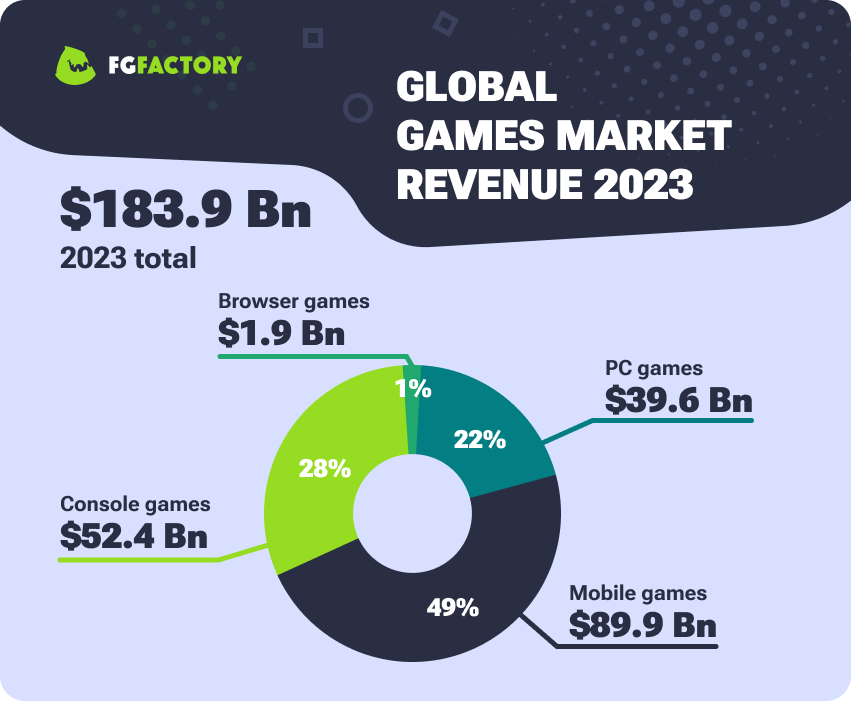Connection Corner
Your go-to guide for relationships, dating tips, and hookup advice.
Loot Case Monetization: Turning Pixels into Profit
Unlock the secrets of Loot Case Monetization and discover how to turn pixels into real profits! Don’t miss out on this lucrative trend!
Understanding Loot Case Monetization: How to Optimize Your Revenue Streams
Loot case monetization has become a crucial aspect of the gaming industry, allowing developers to generate significant revenue while enhancing player engagement. By implementing a model that encourages users to purchase in-game loot cases, developers can create a thriving economy within their games. To optimize your revenue streams, consider offering engaging loot case options that are highly desirable, such as unique skins, rare items, or exclusive access to game features. This not only boosts sales but also enhances user satisfaction, driving up both retention and spending.
To effectively leverage loot case monetization, it’s essential to adopt a data-driven approach in developing your loot strategies. Analyze user behavior and purchase patterns to identify what items resonate the most with your audience. Additionally, employing A/B testing can help determine the optimal pricing for your loot cases. Finally, fostering a sense of urgency through limited-time offers or seasonal events can significantly impact your revenue. By implementing these strategies, you can ensure that your loot case monetization efforts are not only profitable but also aligned with your players' expectations.

Counter-Strike is a highly popular first-person shooter game that pits teams of terrorists against counter-terrorists in a variety of game modes. Players engage in tactical gameplay that emphasizes teamwork, strategy, and skill. If you're looking to enhance your gaming experience, consider utilizing the daddyskins promo code to unlock great features and items.
The Economics of Loot Boxes: Why Gamers Spend and How You Can Benefit
The rise of loot boxes in video games has sparked significant debate about their economic implications. Players are often drawn to these virtual treasure chests due to the thrill of chance and the potential for acquiring rare items. Gamers are willing to spend real money on loot boxes because it enhances their gaming experience, providing a sense of accomplishment and improved gameplay. Factors like peer pressure, social validation, and the fear of missing out (FOMO) play pivotal roles in driving this spending behavior. Understanding these motivations allows developers and marketers to tap into the psychology of gamers and tailor their monetization strategies accordingly.
For businesses, recognizing the economic value of loot boxes can lead to lucrative opportunities. By implementing transparent and ethical loot box systems, companies can foster a loyal player base while also generating revenue. It's essential to strike a balance between profit and player satisfaction; incorporating loot boxes can lead to significant increases in in-game purchases, but it's crucial to avoid alienating your audience. Ensure that players feel their spending provides tangible rewards, and consider using limited-time offers to encourage purchases. Ultimately, a well-executed loot box strategy can lead to sustained financial growth in the gaming industry.
Is Loot Case Monetization Ethical? Exploring the Controversy and Best Practices
The rise of loot box monetization in video games has sparked significant debate within the gaming community and beyond. Critics argue that these systems exploit players, particularly minors, by encouraging gambling-like behavior through randomized rewards. According to a survey by the International Journal of Mental Health and Addiction, nearly 20% of players reported feeling compelled to spend money on loot boxes, raising concerns about potential addiction. This controversy often leads to questions about the ethics of profit-driven game development versus the need for player protection, particularly in terms of maintaining transparency and fair play.
To navigate these ethical dilemmas, game developers can adopt best practices that promote fairness and transparency in loot box monetization. One approach involves implementing clear odds for loot box contents, allowing players to understand the chances of receiving desired items. Additionally, ensuring that players can achieve game progress without necessarily purchasing loot boxes can help alleviate criticism regarding exploitative practices. As the debate continues, striking a balance between profitability and ethical responsibility will be crucial for the future of game development and player experience.